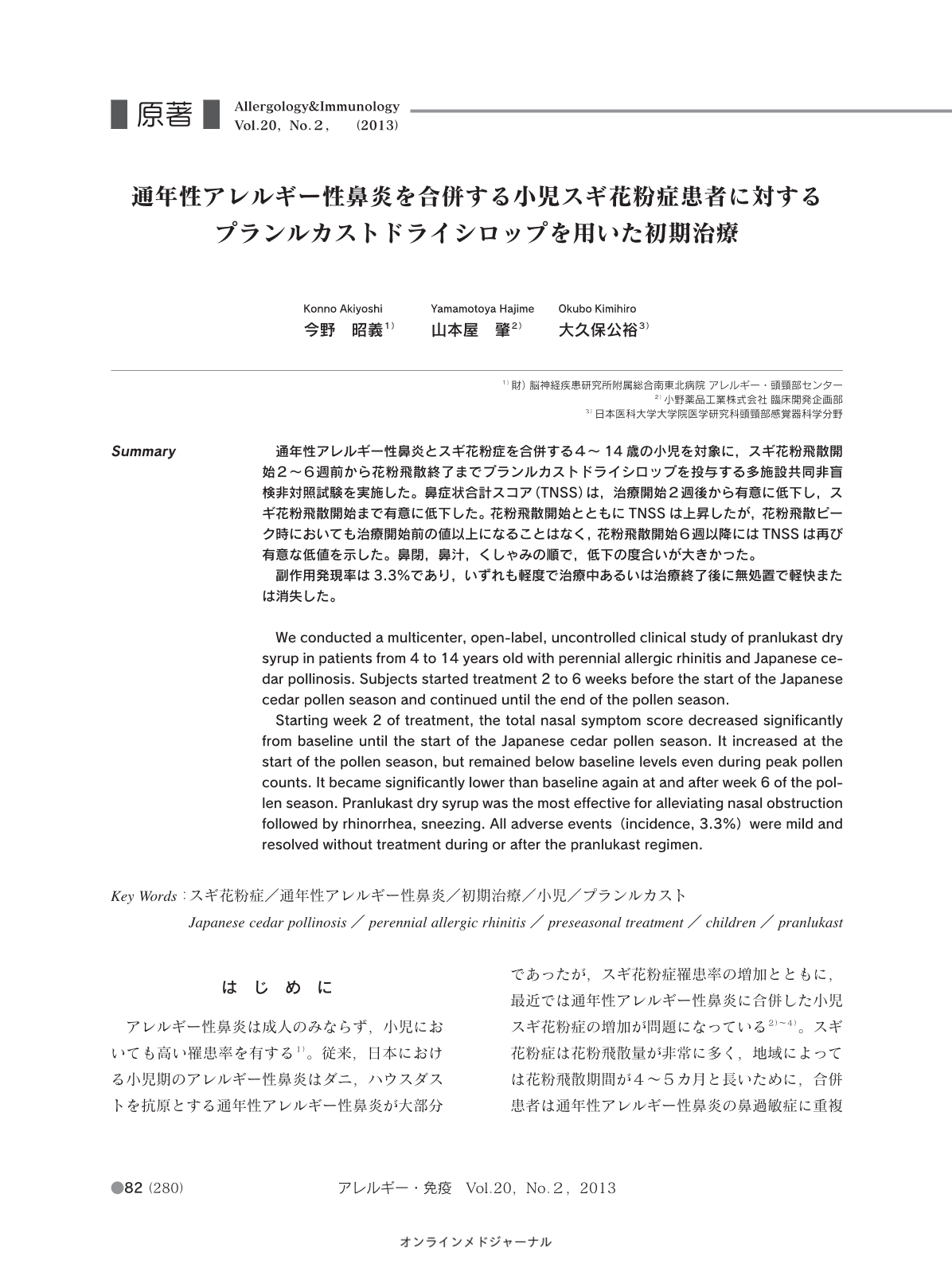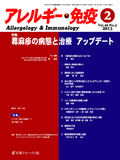- 有料閲覧
- 文献概要
- 1ページ目
- 参考文献
- サイト内被引用
通年性アレルギー性鼻炎とスギ花粉症を合併する4~14歳の小児を対象に,スギ花粉飛散開始2~6週前から花粉飛散終了までプランルカストドライシロップを投与する多施設共同非盲検非対照試験を実施した。鼻症状合計スコア(TNSS)は,治療開始2週後から有意に低下し,スギ花粉飛散開始まで有意に低下した。花粉飛散開始とともにTNSSは上昇したが,花粉飛散ピーク時においても治療開始前の値以上になることはなく,花粉飛散開始6週以降にはTNSSは再び有意な低値を示した。鼻閉,鼻汁,くしゃみの順で,低下の度合いが大きかった。 副作用発現率は3.3%であり,いずれも軽度で治療中あるいは治療終了後に無処置で軽快または消失した。
We conducted a multicenter, open-label, uncontrolled clinical study of pranlukast dry syrup in patients from 4 to 14 years old with perennial allergic rhinitis and Japanese cedar pollinosis. Subjects started treatment 2 to 6 weeks before the start of the Japanese cedar pollen season and continued until the end of the pollen season. Starting week 2 of treatment, the total nasal symptom score decreased significantly from baseline until the start of the Japanese cedar pollen season. It increased at the start of the pollen season, but remained below baseline levels even during peak pollen counts. It became significantly lower than baseline again at and after week 6 of the pollen season. Pranlukast dry syrup was the most effective for alleviating nasal obstruction followed by rhinorrhea, sneezing. All adverse events(incidence, 3.3%)were mild and resolved without treatment during or after the pranlukast regimen.



